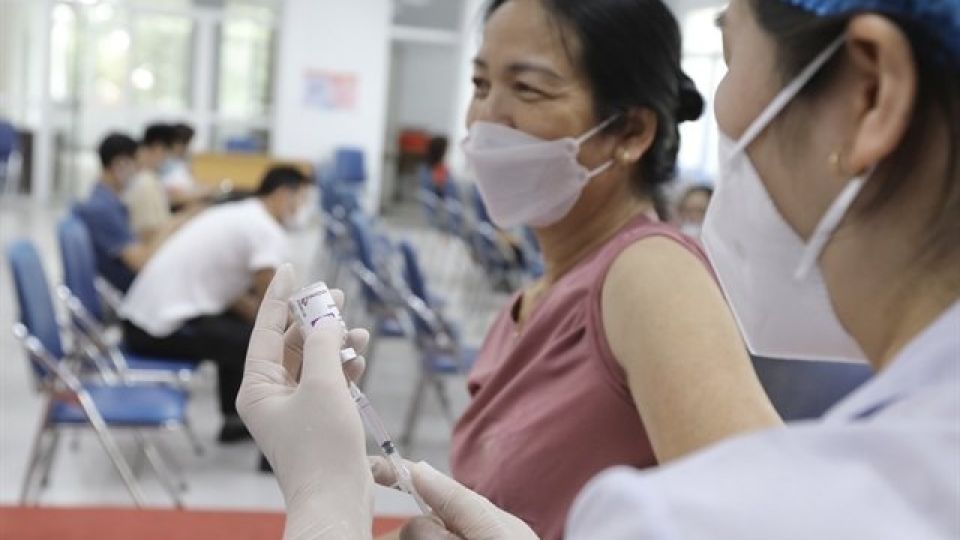December 21, 2023
HÀ NỘI — Assoc. Prof. Dr. Dương Thị Hồng, Deputy Director of the National Institute of Hygiene and Epidemiology in Hà Nội, said there are over 432,000 doses of Pfizer/BioNTech COVID-19 vaccine, with an expiration date at the end of September 2024, being kept in cold storage.
These vaccines are being carefully preserved following the correct procedures, she said.
This is the ‘reserve’ of vaccines that would be used for areas with large outbreaks and high risks. Currently, there are approximately 50,000 people registered for another dose.
Based on professional recommendations, individuals in vulnerable, high-risk groups such as healthcare workers, people with underlying conditions, and those with chronic diseases should receive a fourth dose.
In the Plan for Sustainable Control and Management of COVID-19 in the 2023-25 period, the Ministry of Health stressed the importance of developing and implementing a vaccination plan suitable for different target groups and schedules.
While priority is given to vaccinating high-risk groups, but COVID-19 vaccination should be integrated into regular vaccination sessions at healthcare facilities, or vaccination campaigns can be organised in line with local deployment realities.
Việt Nam has administered over 266.5 million doses of the COVID-19 vaccine (in the population aged from under five years old) and is one of the countries with the highest COVID-19 vaccine coverage in the world, according to health authorities.
The primary (two-dose) vaccination coverage rate for individuals aged 12 and above is approximately 100 per cent. Third dose coverage rate for children aged 12 to under 18 is 69.4 per cent, the rate is 82.1 per cent in individuals aged 18 and above.
Fourth dose coverage rate for high-risk individuals aged 18 and above has reached 89.6 per cent.
The first and second dose vaccination rates for children aged 5 to under 12 are 92.5 per cent and 76.7 per cent, respectively.
In Việt Nam, the COVID-19 situation is still under control. The number of cases is low, scattered in a number of localities, and the infected persons suffering only mild or no symptoms. Hospitalisation and severe cases at treatment facilities are low. Epidemiological surveillance has not yet identified new or unusual variants.
Health officials have also taken note of a spike of COVID-19 incidences in some neighbouring countries in ASEAN like Malaysia and Singapore, as well as the increase in respiratory-related illness cases and reports of cluster of unexplained pneumonia cases in children in a number of northern provinces of China.
Health authorities in these countries attribute the resurgence of COVID-19 cases to a decrease in the population’s immunity and increased travel and festivities during the year-end holiday season. — VNS


